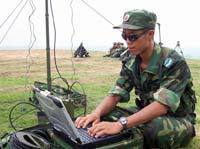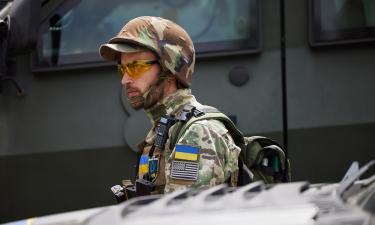USA Threatens China with Military Blows in Response to Cyber Attacks
James Miller, the principal deputy undersecretary of defense, stated during a news conference May 12 that the USA considered a possibility to strike military blows in response to cyber attacks against computer networks of state importance.

"Our systems are probed thousands of times a day and scanned millions of times a day," Miller told a forum sponsored by Ogilvy Washington, a public relations company.
He said the evolving cyber threat had "outpaced our ability to defend against it."
"We are experiencing damaging penetrations -- damaging in the sense of loss of information. And we don't fully understand our vulnerabilities," Miller said. "The scale of compromise, including the loss of sensitive and unclassified data, is staggering," Miller said. "We're talking about terabytes of data, equivalent to multiple libraries of Congress."
Russia Today: Global hacker threat comes from Russia?
The official added that over 100 foreign intelligence services try to find a way to penetrate into US computer networks, not to mention industrial espionage, terrorist, criminal groups and hackers.
Miller did not specify, which of the countries generating hacker attacks could become a target of the Pentagon’s retaliation. He only said that there were "a lot of gray areas in this field." For example, the official said, there was no definition of an act of aggression in cyberspace.
Electronic espionage or efforts to introduce changes into the information presented on websites may not be categorized as cyber-aggression. However, it reminds of the Pentagon’s report to the Congress of 2009 which reflected the USA’s concerns about China’s activities in the field of cyber activities. US defense officials believe that China develops viruses to attack enemy’s computers and takes measures to protect its own computer networks. The report particularly said that China attacked computer systems of the US government in 2008.
The Pentagon established a new structure – Cyber Command – to counteract hacker attacks. Cyber Command is chaired by Keith Alexander, the former director of one of the USA’s top secret intelligence departments – the National Security Agency, which conducts electronic espionage globally with the use of satellites and tapping stations.
The Pentagon has been seriously concerned about the security of its computer networks for a long time already. In 2009, hackers accessed documents of the US fifth-generation aircraft F-35 Lightning II. The Joint Strike Fighter program is the most expensive arms project of the Pentagon.
John Davis, the official responsible for cyber-security in the US Defense Department said that the USA had spent not less than $110 million to protect its computers against hacker attacks during 6 months of 2009.
Speaking of the character of cyber threats, Davis said that they could vary from bored teenagers’ tricks to the threats of national scale.
Many countries assign a lot of funds to make their cyber technologies more advanced. In 2008, US politicians promised to equate cyber-attacks to terrorist acts similar to the 9/11 tragedy.
It is an open secret that the arms race between two superpowers ended with the collapse of the Soviet Union. However, the US supremacy ended on September 11, 2001. Afterwards, America became involved in a series of war, which it continues today.
If China poses the biggest threat to the computer network of the Pentagon, then it is hard to predict the outcome of the new cyber war. China can not be referred to as a superpower yet, but it has all chances to win the title in the future.
Ivan Tulyakov
Pravda.Ru
Subscribe to Pravda.Ru Telegram channel, Facebook, RSS!





